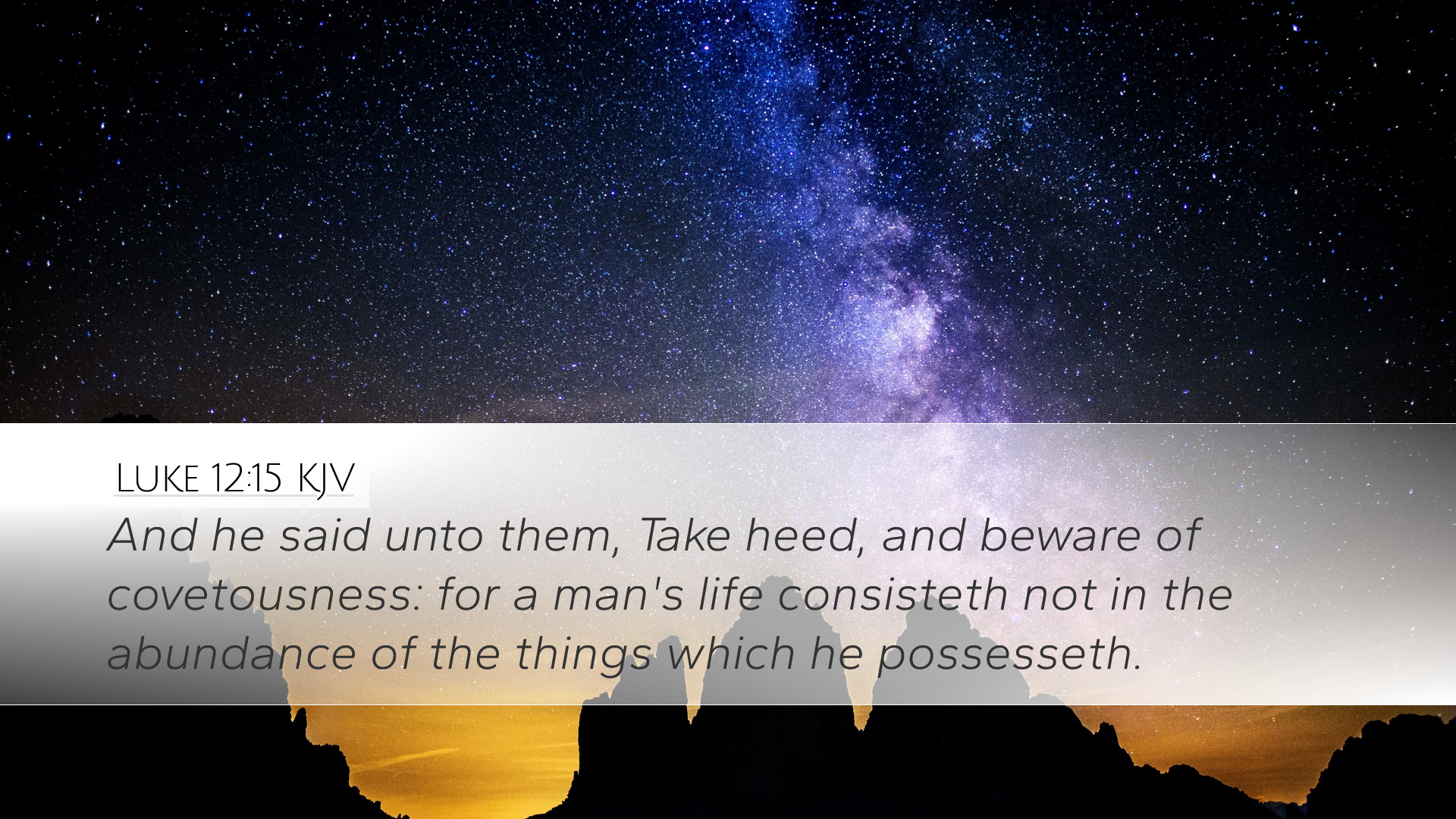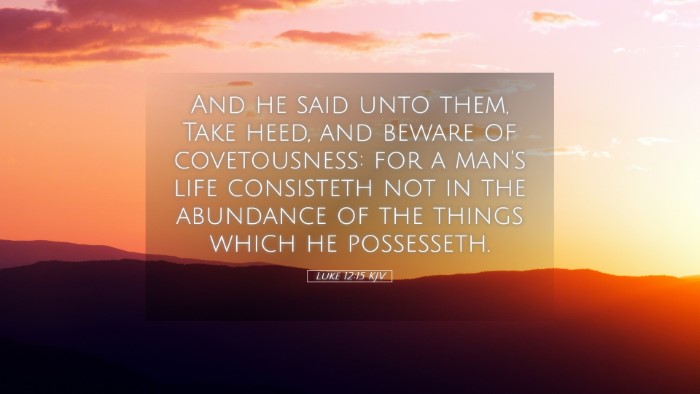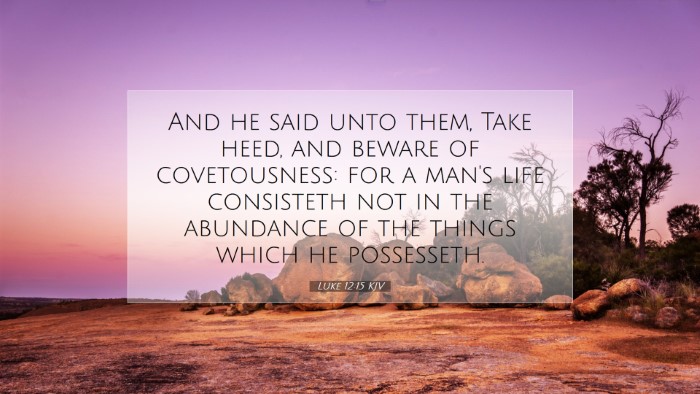Commentary on Luke 12:15
Introduction
Luke 12:15 states, “And he said unto them, Take heed, and beware of covetousness: for a man's life consisteth not in the abundance of the things which he possesseth.” This verse serves as a significant warning against the perils of materialism and the dangers of covetousness. Below, we will synthesize insights from prominent public domain commentaries to delve into the depth of this scripture.
Contextual Background
The context of this verse is critical as it reflects on the teaching of Jesus on greed and the value of spiritual riches over material wealth. In the preceding verses, Jesus addresses a crowd that had gathered to hear Him speak. Notably, a man from the crowd raises a concern about inheritance, revealing a deep-seated desire for material gain. Jesus, in response, shifts the focus from earthly possessions to the eternal significance of one’s soul.
Warnings Against Covetousness
Matthew Henry, in his commentary, emphasizes the necessity of vigilance against covetousness. He notes that Jesus informs the crowd to “take heed” or to be cautious, implying an active awareness of one’s desires. He warns that covetousness can easily arise in the heart, leading individuals away from the sufficiency found in God.
Albert Barnes elaborates on the term "covetousness," explaining that it encompasses more than merely an excessive desire for wealth; it embodies any insatiable craving for that which is not rightfully ours. He argues that covetousness can manifest in various forms, causing strife and discord among individuals, and ultimately leading to spiritual decay. Barnes argues that to measure one’s life by wealth is to misunderstand the true essence of existence.
The True Source of Life
“For a man's life consisteth not in the abundance of the things which he possesseth” is a pivotal assertion in this passage. Adam Clarke points out that this declaration highlights a moral and spiritual truth—that life is not substantiated by material wealth and possessions. He remarked that material prosperity does not contribute to true happiness, peace, or fulfillment.
This idea reflects the broader biblical theme found in Ecclesiastes, where the Preacher explores the futility of chasing after wind in the form of riches. Life's meaning transcends physical accumulation and resides in spiritual relationships and the pursuit of righteousness.
Spiritual Implications
Both Barnes and Clarke address the spiritual implications of this teaching. They emphasize that true life is found in communion with God, embodying virtues such as love, generosity, and selflessness. This aligns with the overarching biblical narrative where Jesus prioritizes the internal state of being over external possession.
Furthermore, **Matthew Henry** asserts that one's affections should be placed on heavenly treasures rather than earthly ones. He quotes Matthew 6:20, encouraging believers to lay up treasures in heaven, emphasizing the eternal significance of spiritual riches compared to fleeting earthly possessions.
Practical Applications
Considering these insights, how can pastors, students, theologians, and scholars apply the teachings of Luke 12:15 in practical terms? Here are some key considerations:
- Self-Examination: Regularly assess personal desires and motivations. Are they aligned with God’s will or influenced by societal values of wealth and materialism?
- Teach Generosity: Encourage biblical principles of stewardship and charity, reflecting on how sharing resources blesses others and brings glory to God.
- Foster Spiritual Growth: Create spaces for community Bible studies focused on the topics of contentment and trust in God’s provision, helping believers to cultivate a kingdom-centered mindset.
- Model Simplicity: Live out a life of simplicity that exemplifies dependence on God, showing that a fulfilling life is marked by deeper relationships rather than material wealth.
Conclusion
In examining Luke 12:15, we are reminded of the vital importance of guarding our hearts against covetousness and recognizing that life’s true value exists beyond the material realm. Drawing from the wisdom of Matthew Henry, Albert Barnes, and Adam Clarke brings to light a multifaceted understanding of this passage. It serves as a compelling challenge to live out our faith by focusing on what is eternal rather than fleeting.


